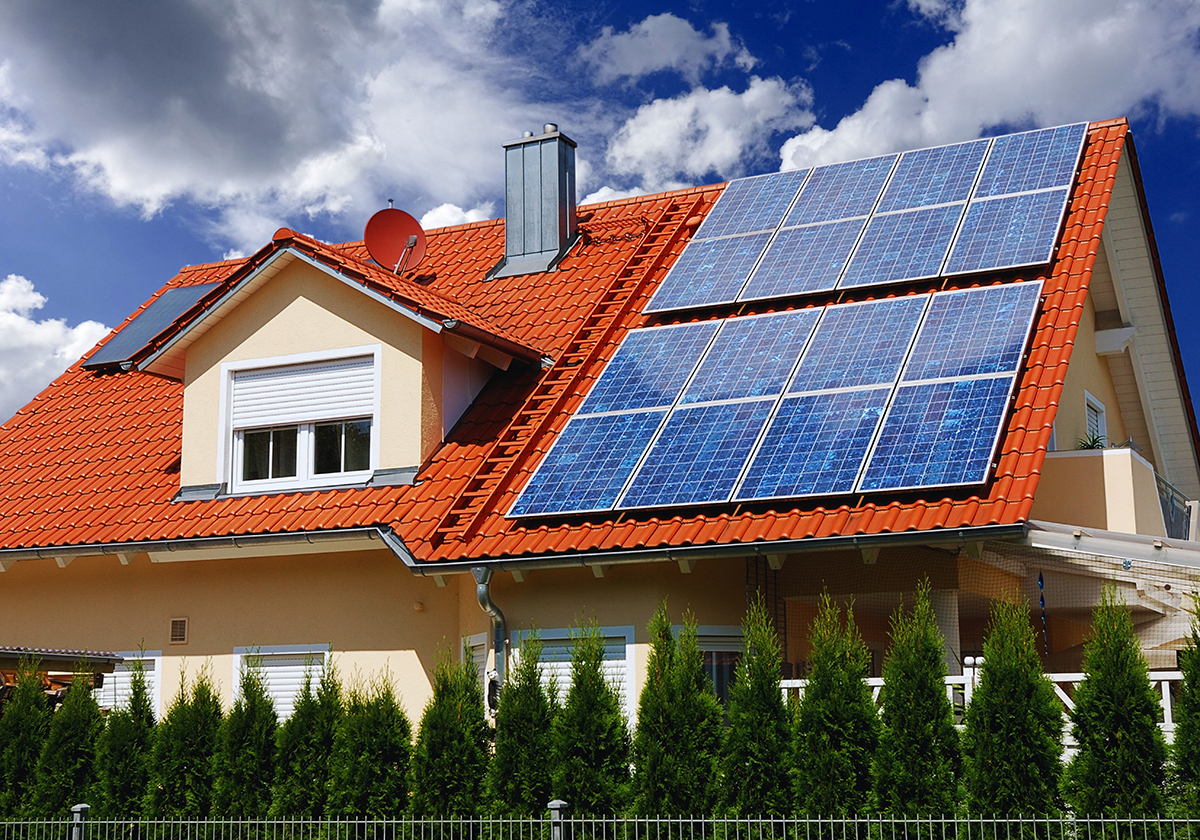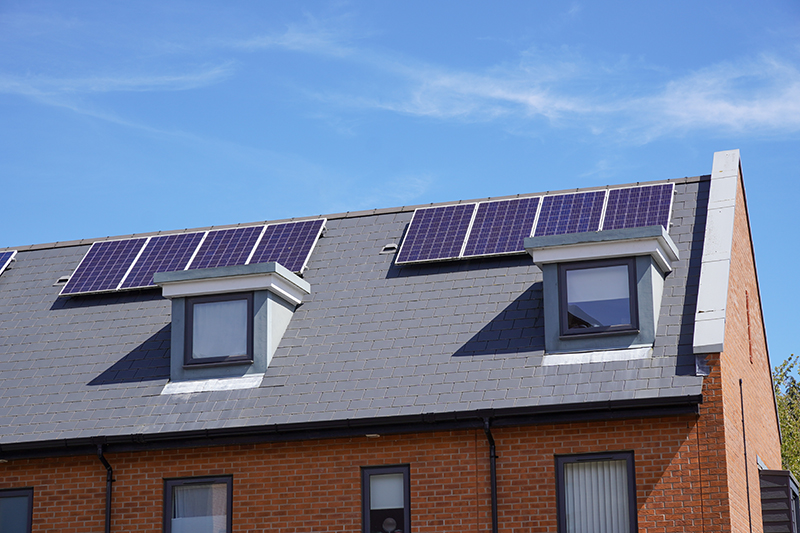Is My Roof Suitable for Solar Panels? A Homeowners Guide

Published: Friday, 11 October 2024
Solar panels have become an increasingly popular way to reduce your energy costs and carbon emissions, they are also known to increase property value. We are seeing more and more solar panels in housing estates and in the future could see them be compulsory for all new builds. However, not all roofs are suitable for solar panel installation. In this guide we will help you assess whether your roof is a good candidate for solar panels.
Roof Assessment Factors
Before you look to install your solar panels, you need to consider is if they are suitable for your roof. The factors you need to consider are roof orientation, roof material, roof age and condition, and shading.
Roof orientation: The angle and direction of your roof can affect the overall effectiveness of your solar panel system. Ideally you want a south-facing roof as it will get the most amount of sun throughout the day compared to other facing roofs.
Roof material: For safety reasons your roof will need to be sturdy enough to hold the weight of a solar panel. The main materials used for these roofs are asphalt shingles and metal roofing.
Roof age and condition: Like roof material, depending on the condition of your roof and how old it is could affect its suitability for solar panels.
Shading: External factors out of your control can also affect the overall efficiency of solar panels. Things life trees and buildings that can obstruct your solar panels from getting most of the solar energy could impact your decision to move forward with a solar panel system.
Solar Panel Considerations
When deciding to move to a solar panel system, deciding what solar panels to go with is probably the most important to make. Here are things to consider when looking at solar panels: panel types, panel size and wattage, inverter compatibility, and battery compatibility.
Panel types: When choosing your solar panels, there are 4 main types to choose from: monocrystalline, polycrystalline, thin-film, and PERC panels.
Monocrystalline – made from a single pure silicon crystal, these solar panels are easily identified with their dark black colour and is the longest lasting of the panel types however this comes with an increase in price.
Polycrystalline – Made from multiple silicon crystals, these solar panels offer a more affordable option, however, comes with a loss in efficiency for energy conversion.
Thin-film – Fine layers of film panels, this makes for a lighting and easier install at the cost of efficiency in comparison to silicon solar panels.
Passivated Emitter and Rear Cell (PERC) Panels – upgraded from tradition monocrystalline cell. PERC adds a passivation layer to enhance efficiency by reflecting light back int the cell, reduces electrons recombining which effects the flow of electrons, and allows a greater wavelength of light to be reflected.
Panel size and wattage: For your roof you need to make sure that you have the correct panel size and wattage for your home. The wrong panel size will affect the overall efficiency of your system, and your wattage being too high could be a risk for your home safety.
Inverter compatibility: An inverter will convert DC energy from your PV solar panels to AC which will fed into the commercial grid so you can use the energy in your home. If you are looking to invest in an inverter you need to make sure that it is compatible with your solar panels.
Battery Compatibility: During off peak hours when you don’t have access to the sun, a battery storage system will allow you to store solar energy throughout the day that can be used during the night, helping you save money and not have to rely on grid energy during the night.
Financial Aspects
Although in the long-term solar panels help you save money on your energy bills, the initial cost can sometimes be too much for people to consider investing in. When deciding if you want to commit to a PV solar system make sure that the initial investment is worth it for you.
Installation Process
The installation process of your solar panels will be something to consider before you get your solar panels. Things to consider are installation timeline and maintenance and upkeep. Please note that in the UK most houses are covered under permitted developments so you won’t require planning permission however there are a few conditions that may apply so we would recommend you check before going forward with your PV system.
Installation Timeline: Depending on the size and complexity of your home PV system, installation can take a while also you will need to find someone who is actually able to install solar panels as not every electrician has the qualifications to do so.
Maintenance and upkeep: Although once installed they don’t require much upkeep, you will need to make sure that your solar panels are kept clean to ensure performance. Upkeep will include removing dirt, debris, ETC which will negatively impact the efficient of your panels.
Considering if your roof is suitable for solar panels depends on a variety of factors including orientation, material, age, condition, and shading. By considering these factors and the financial aspects of solar panels, you should be able to determine if solar panels are a viable option for your home. To learn more about solar energy check out our article here and to find out more about a solar and battery storage system, check out our article here.


